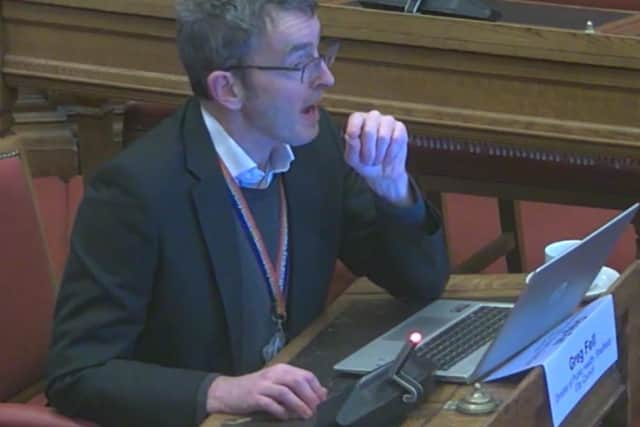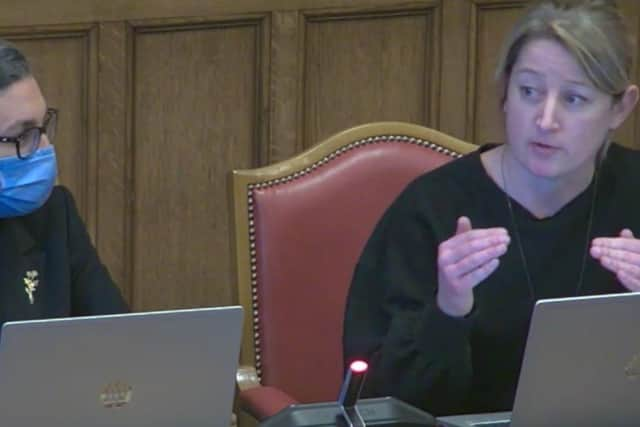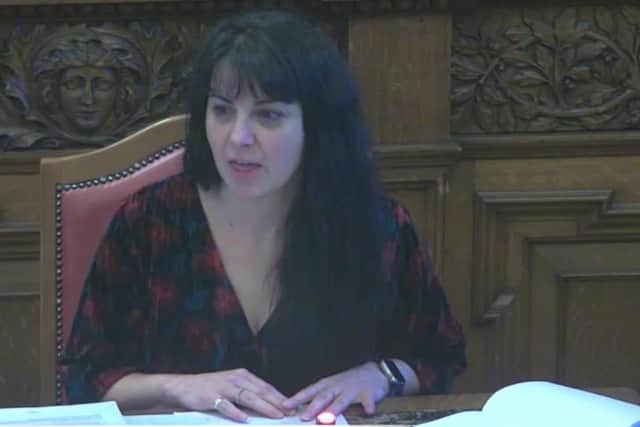Junk food adverts could be banned near Sheffield schools in bid to save lives


Action taken could include banning adverts for junk food and other unhealthy items near city schools and hospitals.
Amanda Pickard, who is acting health improvement principal at Sheffield City Council, spoke at a council health and wellbeing board about an approach to public health that stops looking at people’s individual choices and instead targets the impact of companies producing unhealthy products and services.
Advertisement
Hide AdAdvertisement
Hide AdShe said: “It’s not about being anti-corporate, it’s not being anti-industry, and by association anti-business, it’s very much about being anti-harm and the scale of harm that comes from the commodities and the tactics that are used by these corporates in pushing their unhealthy commodities.”
Amanda said that communicable diseases that can be passed between people are no longer the main cause of death and ill health. She gave an example that more than 1,000 people a year in Sheffield suffer strokes and most are preventable.
‘Deprived communities suffer’
She said the effects on children are particularly worrying. “Just taking childhood obesity rates, almost 40 per cent in some of our most deprived areas of Sheffield in terms of childhood obesity, and that leads to some of our non-communicable diseases – cancers, type two diabetes, stroke – often at a young age.”
Amanda said these were not experienced equally – “it’s our most deprived communities who suffer disproportionately from non-communicable diseases”.
Advertisement
Hide AdAdvertisement
Hide Ad

She said: “This is what we usually hear when we talk about non-communicable diseases – ‘we need to educate people more, we need to give people more leaflets, it’s around willpower or it’s about lifestyle choices’.
“In the last 100 years our genetics have not changed, our willpower has not changed, what has changed is the environment and the space in which we live, particularly from a very commercial point of view.
“Since ’97, we’ve had 700 different policies on obesity in England and most of those focused on individuals having to make those changes for themselves and all of those policies have pretty much failed to have an impact. That’s because they’ve failed to address that environmental, commercial and the context in which we live – choices aren’t made in a vacuum, they are made in response to space, place and the commercial and cultural context in which we live.”
Amanda said that McDonald’s spends £90 million a year on advertising in the UK and the gambling industry spends £10 million a year.
Advertisement
Hide AdAdvertisement
Hide Ad

Gambling adverts
She said that University of Sheffield medical students recently counted how many gambling adverts they were exposed to on a walk from Endcliffe Student Village to the train station. They saw 40 adverts at an exposure rate of 1.03 per minute – students are a key market for gambling companies, she pointed out.
Sheffield ranks in the top 20 per cent for takeaway food saturation in the UK, said Amanda. KPMG research shows the city is the biggest spender on hot food takeaways outside London.
Price promotions in supermarkets lead us to spend around 20 per cent more than we would normally and many are focused around alcohol and junk food. “If you live in a deprived area this is amplified,” she said.


To eat to healthy living guidelines, people on low incomes would have to spend 75 per cent of what they live on, prior to the cost-of-living crisis.
Advertisement
Hide AdAdvertisement
Hide Ad“When we talk about trying to change this, ‘nanny state’ is one of the arguments that always comes up and this is all about personal choice,” she said. “Well yes, that’s one argument you could try and make but actually if you regulate, what you’re doing is giving people more choice because you’re freeing people up from those commercial, those psychologically-driven behavioural pressures that we experience in our everyday lives.”
The report that Amanda, her colleague Magdalena Boo and city director of public health Greg Fell put forward argues for a public health playbook to counter the industry playbook that unhealthy commodities industries have used since the 1950s, originating in the tobacco industry.
‘David versus Goliath’
The industry playbook focuses on creating doubt around evidence that certain products and services are unhealthy, arguing against regulation and getting a ‘seat at the table’ by sponsoring events and lobbying.
“One of the main aims is to shift the emphasis from the corporate to the individual. It’s not about our product that’s a problem, it’s the problem gamblers, it’s the problem drinkers, it’s the people who abuse these products,” said Amanda.
Advertisement
Hide AdAdvertisement
Hide AdShe said that organisations such as DrinkAware and GambleAware are industry funded and subtly repeat those messages pointing away from corporations towards the individual. Their materials are used in schools.
They also want to limit people’s exposure to unhealthy advertising messages in sensitive settings such as around schools, hospitals and addiction services. The council could use its planning powers and the upcoming Local Plan on what developments are allowed to limit the density and spread of firms selling high fat salt sugar foods, tobacco, alcohol and gambling.
Amanda pointed out that such moves are often very popular, citing Transport for London’s 2019 ban on junk food advertising, which had a high approval rating and hit sales of sugary food and drink. Evaluation of the results co-authored by the University of Sheffield showed a 4.8 per cent decrease in obesity, 3,000 potential fewer cases of diabetes and a £218m million NHS saving.
Members of the board, who include a range of local NHS leaders, welcomed the policy.
Advertisement
Hide AdAdvertisement
Hide AdGreg Fell said: “It’s always pitched as a David versus Goliath battle. David won in the end and I’d remind everybody of that. This is about being skilful to change the choice environment and not harp on at individuals to take responsibility.”
Chair Coun Angela Argenzio suggested “going as hard as we can”, which was agreed.
